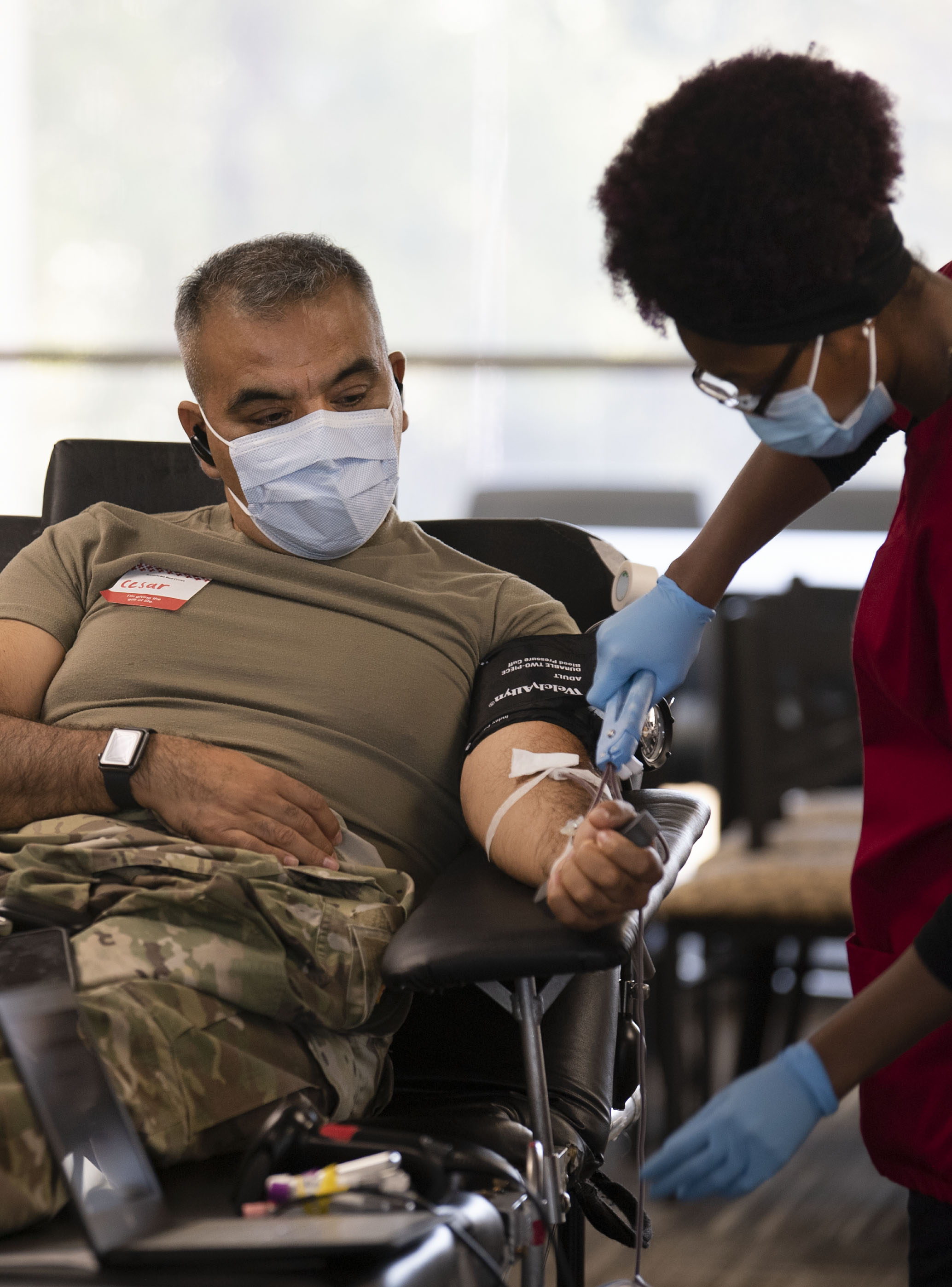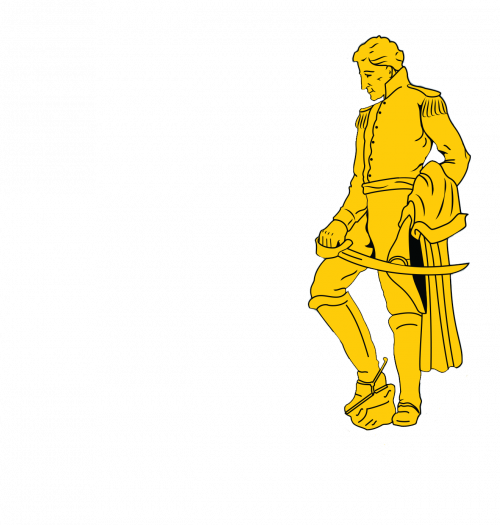
Garrison Command Sgt. Maj. Cesar Duran donates blood during a Community Blood Drive held Oct. 24 in the Moncrief Army Health Clinic multipurpose room. The drive, hosted by Fort Jackson and the American Red Cross, is held quarterly because of the blood shortage in the U.S. (Robert Timmons)
Blood drive aims to help one pint at a time
By Robert Timmons, Fort Jackson Public Affairs
Did you know that one blood donation can help save more than one life? Did you know that every two seconds someone needs blood or platelets?
These questions highlight some of the reasons Fort Jackson and the American Red Cross partner each quarter for a community blood drive.
“One pint of blood can save up to three persons lives,” said Will Sexton, Fort Jackson’s blood drive ambassador. “The Red Cross sends it out through multiple venues to hospitals, burn centers, and trauma units. They are all supported by blood donors.”
Blood donations also help those with Sickle Cell Disease and cancer. Sickle cell patients may need transfusions throughout their lives, while cancer patients need blood, possible daily or during chemotherapy treatments.
According to the Red Cross blood and platelets cannot be manufactured and can only come from donations by volunteers.
While some people may be hesitant to donate blood, it is actually a simple process, said Sexton, who is also a fire inspector on post.
“It is truly one of the simplest things you can do,” he said.
All you need is to be healthy to donate. When a volunteer signs up to donate they will take a simple screening online and then when they arrive, they will be further screened by Red Cross volunteers. If you are eligible, you donate the blood and are almost always done in under an hour, Sexton said.
For Garrison Command Sgt. Maj. Cesar Duran donating blood is “his civic duty.”
“It’s the least I can do,” he said after donating. “I’ve always said that you don’t know when you need blood until you need blood.”
Red Cross statistics show that roughly 29,000 units of red blood cells and nearly 5,000 units of plasma and platelets are needed every day in the U.S. In America, nearly 16 million blood components are transfused each year with the average transfusion using roughly three units.
Those looking to donate blood, or need more information, can visit www.redcrossblood.org. The next blood drive on Fort Jackson is scheduled for Dec. 19.





